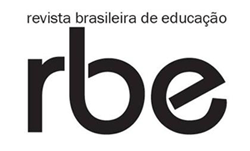This article is oriented by the comprehension that higher education reform is, on the one hand, a political process of institutional adjustment to the conformation of the social being and its activities, originating in the modern State. On the other hand, it seeks to produce a new culture with the goal of constructing the social pact necessary for a given historical moment. These tendencies specifically lead to the identification of some preliminary elements for an analysis of the current institutional reform in Brazil. Therefore, the analysis deals with questions that go beyond a formal legal text like the Higher Education Reform Draft Bill, of 6th December 2004. Among the many elements to be considered in this text certain categories and principles are emphasised which represent the identity of the modern university and those elements which refer to legal-administrative changes prior to the draft bill, that is, those originating from the Law of Technological Innovation, or from the Law that institutes the National Programme of Evaluation in Higher Education, or from the Law that creates the Programme University for All, and, finally, from the Law of the Public/Private Partnerships. The text constitutes a preparation for a more refined analysis of the Higher Education Draft Bill, in the version to be discussed in the National Congress in the near future.
State reform; higher education reform; evaluation of higher education; technological innovation; public/private relationship
